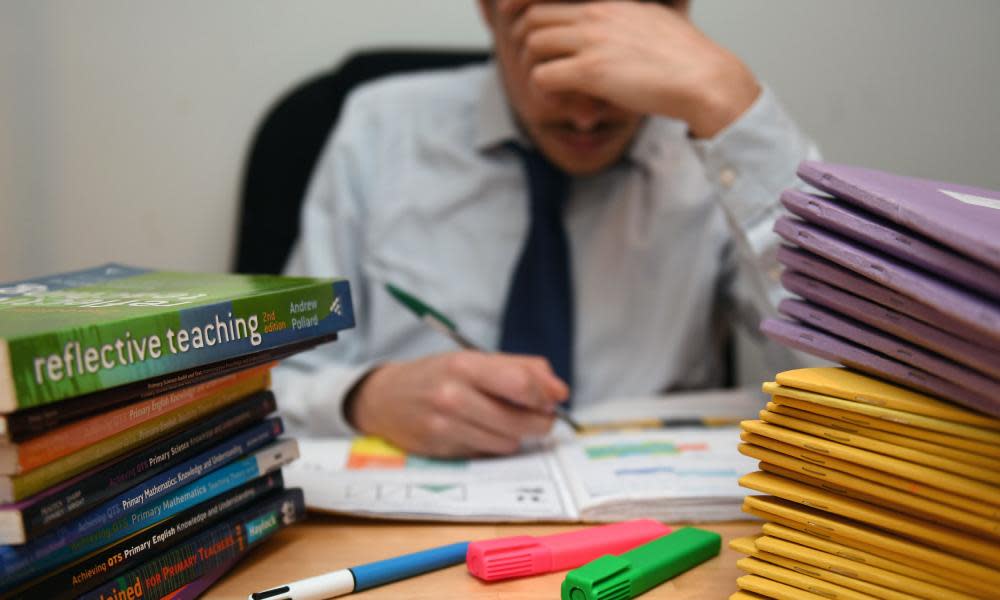The Guardian view on teacher workloads: big lessons to learn

The new secretary of state for education, Gavin Williamson, knows a lot about the heavy workloads piled on teachers. His wife used to teach in a primary school. Then she left the profession to become a teaching assistant partly because, he said this month, “there was always a big challenge in terms of workload, and this is one of the things we need to address”.
Indeed. More than personal experience, hard figures back up the cabinet minister’s worry. A new report from the UCL Institute of Education finds that one in four teachers in England work over 60 hours a week. It is standard for teachers to work into the evening and around one in 10 does weekends, too. These are approaching investment banker hours – without, needless to say, anything like investment banker pay: a newly qualified teacher outside the M25 can expect to start on £23,720. No other school system in the industrial world gouges so many hours out of its staff. Finland boasts what is commonly called the best education system on the planet, yet its average teacher clocks up 34 hours a week, while their counterpart in England does 49 hours. The consequences of all this pressure, say the trade unions, are stark and devastating. The National Education Union reports that one in three newly qualified teachers in English classrooms quit within five years, leading to fewer older teachers sticking around and thus to students being deprived of knowhow.
This is clearly registering as a major political issue. Last month, this paper reported on a leak of a confidential government document trailing a whole raft of school policies, key among them the promise to swap “workload-inducing practices for evidence-based approaches”. Sadly, they are unlikely to have much effect: the UCL paper makes clear that nothing much in all the education policy passed in the past two decades has altered, for good or ill, the working hours of staff. But if pressures on a teacher’s day remain remarkably high, the nature of them has completely altered. It is hard to imagine a moderately well-run school of the early 90s descending into terror at the prospect of an Ofsted inspection or Sats – yet today it might, and rightly so, given that the consequences of a poor Ofsted verdict would mean being removed from local-authority control and handed over to an academy trust. It is hard to imagine schools 25 years ago acting as social services or food banks, as they do today after a decade of public-spending cuts. Whether it is keeping children in breakfast or putting on elaborate drama performances, the pressures on schools have surely never been more multi-layered or intense. Much of this pressure is exerted from outside the school gates: from ministers to multi-academy bosses to parents.
The leaked briefing says: “Within schools, we know teachers make the biggest difference to how well pupils do in their education.” This is a questionable premise: one would not say that GPs make the biggest difference to a patient’s life expectancy, over their income or their environment. But it is also not an idea that governments of any hue have followed to its logical end. If teachers are so important, then why not pay to get the best possible, as Mr Williamson called for on Wednesday, and trust them more? Why all the excess accountability measures, the declaration (by the Conservatives) of “all-out war” on supposedly mediocre education, the constant organisational and curriculum changes? Teaching is not the only profession to be treated thus, and monitoring obviously has its place. But if workloads are finally troubling government ministers, they have an easy solution to hand: stop piling the work on.

 Yahoo News
Yahoo News 
